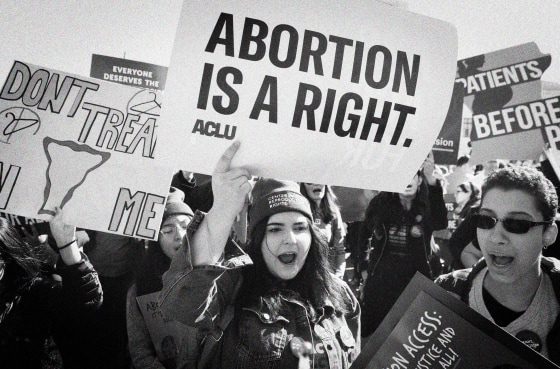“The alarmists were right about everything” tweeted NBC News reporter Ben Collins on the morning of September 2, as America woke up to a new abortion rights reality. Following the dead-of-night Supreme Court decision to uphold Texas’s Senate Bill 8, the nation’s most baroquely cruel abortion law is now the law of the land. Collins was being sarcastic, but the tweet struck a nerve. As any character in a disaster movie who tries and fails to warn others of an incoming alien invasion, zombie apocalypse, or catastrophic weather event can confirm, no one’s happy to say they told you so as a worst-case scenario becomes real.
No one’s happy to say they told you so as a worst-case scenario becomes real.
And climate scientists, historians, epidemiologists, activists, and more are frankly sick of being so right after years of being told they were overreacting. Worried about the proliferation of wildfires and hurricanes that now characterize summers on the West and East coasts? Climate alarmism. Concerned about the number of “heartbeat bills” that will likely take effect in the wake of the Supreme Court’s shadow-docket ruling? Calm down, little lady, Roe v. Wade isn’t in any real danger. Wearing your mask outside because, after all, hospitals are still packed with Covid-19 cases and you have small children, elderly relatives, or are immunocompromised? Calm down, Karen. Terrified at the speed with which democracy appears to be crumbling under a glut of voter restrictions and viral disinformation? Touch grass, dude.
In a world that contains countless tragedies, not everyone is equally affected by everything, of course. During Paul Revere’s midnight ride, there was probably at least one person who heard him cry that the British were coming and responded by rolling their eyes. But today, the environment in which such accusations are made today is radically different. News media is bigger, faster, and more inescapable. Social-media platforms function simultaneously as portals for connection and conduits for disinformation. And the difference between an authority and an alarmist increasingly is determined by who shouts louder.
Climate scientists and their predictive models are waved off by a TV millionaire who thinks wildfires can be averted by raking forest floors more thoroughly. Journalists with reams of published work on how democracies die and fascist movements rise are ignored by cable-news anchors worried that white-nationalist genocide enthusiasts aren’t getting enough airtime. Advocates for criminal -justice reform working in communities of color are told that they don’t really mean what they say about defunding the police.
When Martha Mitchell, wife of former President Richard Nixon’s attorney general, began spilling the beans on Watergate in 1972, she was so viciously and relentlessly smeared that her name became synonymous with medical gaslighting. With the release of his documentary “An Inconvenient Truth” in 2006, Al Gore knew he’d be lampooned far and wide as a tree-hugging fussbudget — after all, he’d seen the vicious reactions to Rachel Carson’s landmark 1962 book “Silent Spring.” In 1981, when AIDS was still called gay-related immune deficiency, or GRID, a senior investigator at the National Institute of Allergy and Infectious Diseases named Anthony Fauci had a paper rejected by the New England Journal of Medicine.
But here we are. Martha and Al and Tony were right. And so were the many, many people who have spent decades tracking the well-coordinated long game of abortion foes; helping elect pro-choice legislators; working to end archaic pre-Roe restrictions on abortion and contraception access; demanding that violence against providers and clinics be investigated as domestic terrorism; and fighting frivolous state mandates, including waiting periods and transvaginal ultrasounds, that aim to bully women into childbirth.
Now, Texas clinics are turning away people seeking abortions because the new law incentivizes private citizens to report those who help others access them, whether it’s a physician or just a friend who offer a ride to the clinic. And while Texas’s ban is the most high-profile, it’s by no means the only one: Anyone blithely reasoning that patients can simply head to a clinic in neighboring state might want to think again.
This isn’t about exaggeration or hysteria (a very gendered term, by the way). This is about paying attention.
This isn’t about exaggeration or hysteria. This is about paying attention.
Those who use their platforms to denigrate subject-matter experts as just so many Chicken Littles would likely tell you that they are detached observers processing information through a neutral lens, able to objectively assess critical issues and divisive rhetoric. And indeed, objective journalism is more important than ever in a time where reality itself is increasingly politicized. But what’s happening in Georgia and Texas and Arizona and Mississippi is a vital reminder that in America right now, the fear is so real because the danger is so real.
It’s no accident that people regularly scorned as alarmists tend to be those who pay attention to laws, policies, and beliefs because their lives, rights, and freedoms literally depend on it. It’s easy to claim, as CNN personality Brian Stelter did in a 2018 tweet he quietly deleted after this week’s court ruling. Comparing the United States to the fictional Gilead of “The Handmaid’s Tale” was irresponsible fear-mongering, Stelter claimed. But it’s not his bodily autonomy at stake.
History shows us that no matter how many people warn of grassroots fascism, work to elect pro-choice state legislators, or blow the whistle on everything from election meddling to dark money–funded climate-change denial, there will be those who put their heads in the sand and wonder why they didn’t see disaster coming. Many of us have been sounding the alarm about the impending death of Roe v. Wade for decades. If you weren’t listening, now’s a great time to start.


